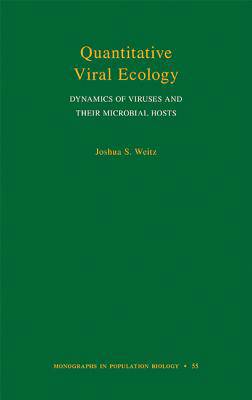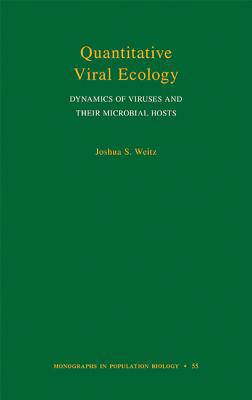
- Retrait gratuit dans votre magasin Club
- 7.000.000 titres dans notre catalogue
- Payer en toute sécurité
- Toujours un magasin près de chez vous
- Retrait gratuit dans votre magasin Club
- 7.000.0000 titres dans notre catalogue
- Payer en toute sécurité
- Toujours un magasin près de chez vous
124,45 €
+ 248 points
Description
When we think about viruses we tend to consider ones that afflict humans--such as those that cause influenza, HIV, and Ebola. Yet, vastly more viruses infect single-celled microbes. Diverse and abundant, microbes and the viruses that infect them are found in oceans, lakes, plants, soil, and animal-associated microbiomes. Taking a vital look at the "microscopic" mode of disease dynamics, Quantitative Viral Ecology establishes a theoretical foundation from which to model and predict the ecological and evolutionary dynamics that result from the interaction between viruses and their microbial hosts.
Joshua Weitz addresses three major questions: What are viruses of microbes and what do they do to their hosts? How do interactions of a single virus-host pair affect the number and traits of hosts and virus populations? How do virus-host dynamics emerge in natural environments when interactions take place between many viruses and many hosts? Emphasizing how theory and models can provide answers, Weitz offers a cohesive framework for tackling new challenges in the study of viruses and microbes and how they are connected to ecological processes--from the laboratory to the Earth system. Quantitative Viral Ecology is an innovative exploration of the influence of viruses in our complex natural world.Spécifications
Parties prenantes
- Auteur(s) :
- Editeur:
Contenu
- Nombre de pages :
- 360
- Langue:
- Anglais
- Collection :
- Tome:
- n° 55
Caractéristiques
- EAN:
- 9780691161549
- Date de parution :
- 05-01-16
- Format:
- Livre relié
- Format numérique:
- Genaaid
- Dimensions :
- 157 mm x 236 mm
- Poids :
- 725 g

Les avis
Nous publions uniquement les avis qui respectent les conditions requises. Consultez nos conditions pour les avis.






